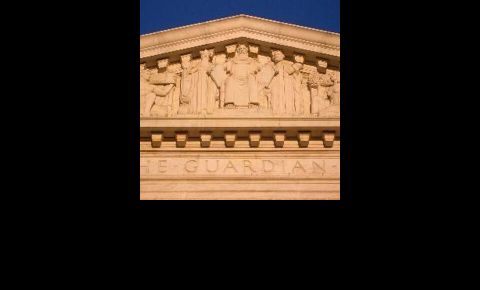
Supreme Court blocks Texas abortion-clinic rules
WASHINGTON (AP) _ The Supreme Court is refusing to allow Texas to enforce restrictions that would force 10 abortion clinics to close.
The justices voted 5-4 on Monday granting an emergency appeal from the clinics after a federal appeals court upheld new regulations and refused to keep them on hold while the clinics appealed to the Supreme Court.
The Supreme Court order will remain in effect at least until the court decides whether to hear the clinics’ appeal of the lower court ruling, not before the fall.
Supreme Court will re-hear Texas affirmative action
WASHINGTON (AP) _ The Supreme Court says it will dive back into the fight over the use of race in admissions at the University of Texas, a decision that presages tighter limits on affirmative action in higher education.
The justices said Monday they will hear for a second time the case of a white woman who was denied admission to the university’s flagship Austin campus.
The conservative-leaning federal appeals court in New Orleans has twice upheld the university’s admissions process, including in a ruling last year that followed a Supreme Court order to reconsider the woman’s case.
Justices uphold use of drug that was implicated in botched executions
WASHINGTON (AP) _ The deep divisions on capital punishment among Supreme Court justices are emerging again in a ruling about the use of a lethal injection drug.
By a 5-to-4 vote, in a case from Oklahoma, the court today upheld the use of a controversial drug in executions. But in a dissent, two justices said for the first time that they think it’s “highly likely” that the death penalty itself is unconstitutional.
The court held that the sedative midazolam (mih-DAZ’-oh-lam) can be used in executions without violating the Eighth Amendment prohibition on cruel and unusual punishment.
Writing for the majority, Justice Samuel Alito dismissed as speculative the arguments that the drug could not be used effectively as a sedative in executions. He said problems that occurred in executions in Arizona and Oklahoma have “little probative value.”
In a dissent, Justice Sonia Sotomayor said the court’s ruling would seem to allow prisoners to be “drawn and quartered, slowly tortured to death or actually burned at the stake.”
Alito responded, saying that the “outlandish rhetoric,” as he put it, revealed the “weakness” of the legal arguments against the use of the drug for executions.
In a separate dissent, Justice Stephen Breyer said the time has come for the court to debate whether the death penalty itself is constitutional. Justice Ruth Bader Ginsburg joined Breyer’s opinion.
Justices rule against EPA power plant mercury limits, affecting Texas
WASHINGTON (AP) — The Supreme Court has ruled against federal regulators’ attempt to limit power plant emissions of mercury and other hazardous air pollutants.
The rules began to take effect in April, but the court said by a 5-4 vote Monday that the Environmental Protection Agency failed to take their cost into account when the agency first decided to regulate the toxic emissions from coal- and oil-fired plants.
The challenge was brought by industry groups and 21 Republican-led states.
Writing for the court, Justice Antonin Scalia said it is not appropriate to impose billions of dollars of economic costs in return for a few dollars in health or environmental benefits.
The case now goes back to lower courts for the EPA to decide how to account for costs.
